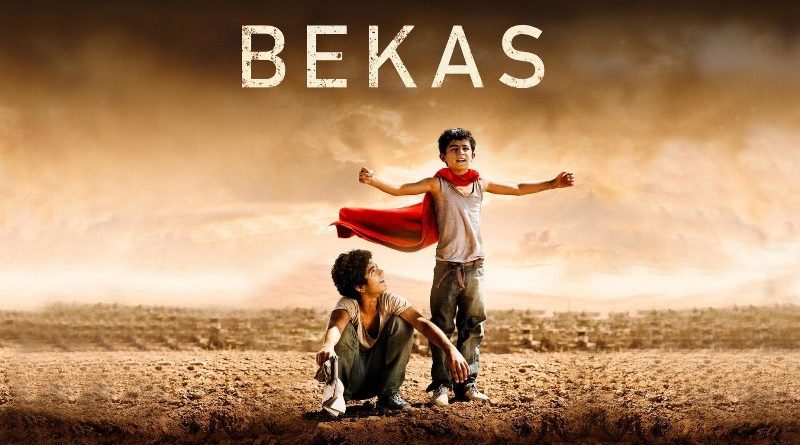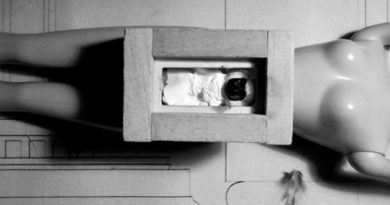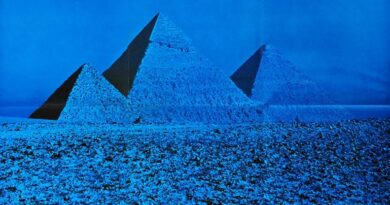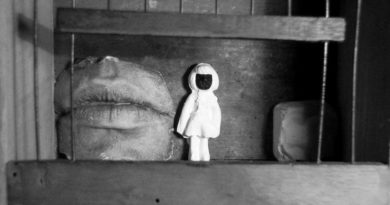Multiple journeys from white void – Qual è il dono che state chiedendo?
di Gouthama Siddarthan
Massimo Soumaré, scrittore e critico di fantascienza, mi ha scritto dicendo che dopo aver trovato abbastanza interessante il mio recente articolo sulla comunità dei lavandai, voleva saperne di più sul loro stile di vita. In paesi come l’Italia, i lavandai sono incasellati come comunità? Sollevando questa domanda nella mia mente, mi misi in cerca di dati sulla loro condizione di vita, ma invano.
In questo contesto, ora una piccola passeggiata antropologica!
A proposito della comunità dei lavandai, molto è stato registrato nell’arte, nella letteratura e nel cinema indiani. Ma sia nelle lingue che nel cinema in altri paesi, non c’è stato mai stato molto a loro riguardo. Sono identificati solo come persone impegnate a lavare i panni. Punto. In nessun luogo sono stati presentati come comunità o come casta. Si può dire con certezza che quasi non ci sono dati sulla loro condizione di vita.
È solo in India che il clan dei lavandai è stato impostato come una casta alla quale ereditariamente viene affidato il lavoro di lavare i panni in quello che viene chiamato “sistema di dovere civico”, che significa servire le persone coinvolte nella produzione agricola per soddisfare i bisogni fondamentali dell’uomo. I sociologi indiani chiamano il sistema “Gejmania”.
In India, nei loro confronti si pratica l’intoccabilità, degradandoli in un sistema privo di qualsiasi senso di umanità nei confronti degli altri esseri umani. Il lavoro di pulire gli indumenti sporchi li ha tenuti sul gradino più basso come intoccabili. L’atteggiamento disumanizzante nei confronti dell’occupazione e dell’asino, un animale domestico usato per trasportare gli abiti sporchi, ha innescato una caduta dei valori sociali della gente della comunità. ‘Asino’ viene usato come una insulto contro di loro. In questo frangente, non posso fare a meno di ricordare il film curdo Bekas diretto da Karzan Kader. Il film narra la storia di due orfani curdi che viaggiano in America per incontrare il superuomo che è ben noto per risolvere tutti i problemi e dirgli: “Grande fratello! Per favore, risolvi tutti i nostri problemi. “
Quando si parla di film internazionali, sono le opere d’arte iraniane a colpire la mente. Il linguaggio della celluloide di personalità come Abbas Kiarostami, Asghar Farhadi, Mohsen Makhmalbaf, Majid Majidi, Jafar Panahi, Bahman Ghobadi, Shirin Neshat viene convertito nel linguaggio del loro paesaggio geografico e culturale, nonché il loro gergo politico.
Molto è stato detto fino alla nausea sui “Children of Heaven”. La lingua del cinema, la politica e la cultura dei paesi arabi di The Song of Sparrows, Turtles Can Fly, Close-up e Offside ecc. Sono stati molto discussi. Ma il film curdo Bekas non ha incontrato rassegne molto clamorose nell’arena globale. Perché Hollywood ha prodotto certe immagini curde attraverso scene artificialmente forti e la delineazione dei curdi sotto scarsa luce. Rompendo gli stereotipi prodotti a Hollywood dell’Iraq e del Kurdistan, come regioni aride, spaventose e terribili, sedi di fondamentalismo religioso e terrorismo, Bekas propone una prospettiva satirica che si tinge di parodia politica, mantenendo allo stesso tempo un tono popolare.
Il regista Karzan Kader si fa beffe un fotogramma dopo l’altra della dominazione, della religione e della politica americane che hanno demolito le credenze e la vita culturale della gente. Il linguaggio della celluloide dei cineasti iraniani, in generale, contiene un messaggio politico sommesso, che parla di una politica alternativa tinta di sensibilità artistica. Ma il linguaggio del regista curdo Karzan Kader fa una parodia della politica globale, trasformando la politica seria in una satira. Il film ruota attorno a due fratellini – Dana e Zana – che, infuocati con il desiderio di partire per l’America, hanno lavorato sodo per risparmiare e per ottenere i passaporti. Nella moschea Zana prega che tutte le scarpe sporche vengano portate a loro, evocando parole di derisione da Dana, “Perché non chiedi soldi a Dio stesso?”
La risposta del fratello minore arriva diretta, “No. Dio non dovrebbe essere tormentato per soldi. Se lo facciamo, porterà via tutto ciò che abbiamo. “
Di nuovo, con tono canzonatorio, Dana dice “Ehi, idiota! Che cosa abbiamo ora da portarci via? “
Scene come questa abbondano in questo film.
Ad un certo punto del tempo, i ragazzi si sentono impotenti, incapaci di risparmiare abbastanza per il loro ambito viaggio negli Stati Uniti. Quindi, partono con un asino che avevano comprato e chiamato Michael Jackson. Il loro viaggio e gli incidenti che incontrano sulla strada sono tutti rappresentati in modo interessante e satirico.
Un film così eccezionale è menzionato in Wikipedia come segue: “Bekas è un film drammatico-comico curdo scritto e diretto da Karzan Kader e pubblicato nel 2012. Il film ruota attorno a due fratelli fratelli lustrascarpe di nome Dana & Zana, che partirono per l’America con l’asino, di nome Michael Jackson.”
Le righe di cui sopra sono solo un adattamento di una piccola recensione del film che è apparso su www. rottentomatoes.com
Quanto è crudele la micropolitica!
Mentre Wikipedia è piena di paroloni sui film spazzatura di Hollywood, passa sopra a un film satirico e politico artisticamente meraviglioso, spargendo poche parole in una recensione. Anche in questa breve rassegna di una sola riga, si dimostra una disonestà estrema. I ragazzi orfani prendono un asino per il loro viaggio negli Stati Uniti per incontrare il superuomo che risolverà i loro problemi. Chiamano l’animale domestico come Michael Jackson in una rappresentazione simbolica di un artista pieno di odio per il nero e folle amore per il bianco. Ma guardate come Wikipedia ha rovesciato il simbolismo. Semplicemente dicendo che l’immagine di Michael Jackson è sovrapposta sul simbolo dell’asino, ha cambiato il simbolo in uno opposto. Un’ironia tragica costruita con cura! È un esempio da manuale di come i media globali si concedono alla micropolitica contro i paesi del Terzo mondo.
Questo articolo sarà completo solo se lo completerò con un episodio su una ragazzina della nostra regione che eseguì la stessa prodezza satirica nostrata da Karzan Kader nel suo film, in un lavoro di scrittura scolastica. Molto tempo fa, alcune organizzazioni spirituali hanno condotto un concorso di scrittura di saggi per gli studenti delle scuole del Tamil Nadu, intitolato “Dillo a Swamy Vivekananda”.
Il concorso è stato piuttosto interessante in quanto i partecipanti sono stati invitati a scrivere i loro saggi che ruotavano attorno a Swamy Vivekananda, in cui dovevano dire come avrebbero usato il dono, se concesso loro dal Dio in sogno, iòl potere di rendere istantaneamente il pensiero una realtà.
La piccola Vennila che studiava nella classe numero 8 scrisse un saggio per partecipare al concorso. E mi contattò attraverso suo padre per verificarne la qualità. Il suo saggio aveva diverse cose come “Trasformerò l’India in una superpotenza”, “Proteggerò il nostro paese in cui il nostro popolo vive come fratelli e sorelle in armonia religiosa”, “Fermerò lo tsunami che invade la terra”, “Troverò modi e mezzi per garantire che tutte le persone nel mondo vivano come buoni esseri umani in vincoli di amicizia “. Il saggio della ragazza portava una testimonianza del fatto che il nostro è un ambiente di conoscenza intriso di idee e nozioni preconcette alimentate dai media nel nostro cervello.
Sentendomi disinteressato e tuttavia nascondendo la sensazione di noia, le parlai.
“Cos’è una superpotenza, cara?”
Lei sbatté le palpebre.
“Cos’è l’armonia religiosa?”
“Sai come si forma lo tsunami?”
“Chi ti ha detto che gli ignoranti sono idioti?”
Era totalmente sbilanciata. Ma sono riuscito a portarla verso una mentalità normale, parlandole di diverse cose dolcemente.
“Hai scritto tutte queste cose, conoscendo abbastanza bene il significato dei contenuti? La TV ti ha colpito così tanto”, spiegai in modo elaborato.
“Ti piace quello che hai scritto adesso? O hai scritto quello che hai fatto solo per guadagnare gli allori dagli altri? “
“Solo per partecipare al concorso, non scrivere punti di vista degli altri. Annota qualsiasi cosa tu stia pensando in origine. Quaio che siamno i tuoi pensieri sono, scrivili così come sono. Questa è la tua originalità, che ti distinguerà”, dissi, entusiasta e incoraggiante.
“Sai chi è Vivekananda?”
“No.”
“Scrivi quello che sai. Dì solo che non sai cosa effettivamente non sai,” dissi, dandole un sacco di consigli.
Dopo di ciò, scrisse un altro articolo. Ora copierò qui quello che scrisse allora.
“Mi chiamo M. Vennila, studio nella classe 8 nella scuola media del Panchayat della città di Alathur. Il nome di mio padre è Maakaali e Rathnaal quello di mia madre. Il babbo lavora in un laboratorio di tintura e la lava lava i vestiti per mantenerci. Nella mia scuola, mi è stato chiesto di scrivere su Vivekananda. Ma fino ad ora nessuno mi ha insegnato nulla di Vivekananda. Conosco solo Vivekananda seduto nel quarto banco nella fila dietro di me.
Mentre stavo sbattendo le palpebre, non sapendo cosa scrivere, il mio insegnante mi ha detto di andare in biblioteca, leggere i libri di Vivekananda e poi scrivere un tema. Ma la biblioteca si trova in città a circa 3 km dal dove stiamo. Per prendere in prestito libri dalla biblioteca, dovevamo pagare e iscriverci come membri. Se avrò coraggio di chiedere a mio padre di portarmi in città e chiedergli dei soldi, mi sgriderà. In effetti andava in città una volta alla settimana e allestiva un chiosco per stirare. A quel tempo, andavo a trovarlo e mi comprava un po’ di caramelle. Ricordo di aver masticato i biscotti, gonfiandoli e scoppiandoli. Ora, lui non ci va più, perché lavoran nel laboratorio di tintura di Erode. Ma il nostro destino peggiore impallidisce di significato, paragonato a quello dei miei nonni che vivono in un villaggio impoverito. È l’unico desiderio di mio nonno di vagare per il villaggio nel pomeriggio torrido e di cavalcare un asino, fare un giro intorno ai terreni comuni, al mercato, al tempio, agli stagni e ai campi coltivati. Ma dicono che il suo sogno sia impossibile. Se solo mi fosse concesso un desiderio, porterei mio nonno nel pomeriggio in giro al mercato, al terreno comune, al tempio, agli stagni e ai campi coltivati.
Tua M Vennila
VIII standard
Scuola Media Città Panchayat Alathur”
Nel momento in cui finii di leggere, non riuscivo a distinguere nulla. Un po ‘più tardi, capii con intensità e potenza.
Il messaggio che mi venne in mente era il seguente:
Il villaggio in cui viveva suo nonno era così strutturato sulla base delle caste che c’erano molte regole proibitive e regolamenti. Era membro della comunità conosciuta come “puradhai vannar” (una sorta di comunità dei lavandai). Poiché era stato decretato che guardare le persone di quella comunità a occhio nudo era un grande peccato o una contaminazione, furono messi in quarantena e non osavano avventurarsi fuori dalle loro dimore all’aperto durante il giorno. Se dovevano uscireuscire, lo facevano con attenzione per non essere visti dagli altri in pubblico.
Da quel nascondiglio socialmente degradante, disgustoso e avvilente, il nonno doveva essere recuperato, salvato e riabilitato. Poteva vagare in pubblico durante il giorno solo attraverso un miracolo. Che quel miracolo avvenga e che il Dio mi conceda il dono, ecco per cosa prega la ragazza! l linguaggio politico del film del regista curdo mi è stato restituito da quella ragazzina di capagna attraverso il suo linguaggio della realtà.
Bene, amici! Qual è il dono che voi state chiedendo?
Traduzione di Davide Mana
Testo originale
What’s the boon you’re asking for?
by Gouthama Siddarthan
Sci-fi writer and critic Massimo Soumare’ has written to me, saying that after finding my recent article about the washermen community quite interesting, he wanted to know further about their lifestyle. In countries such as Italy, are washermen pigeonholed as a community? Raising this question in my mind, I set out in search of data about their living condition, but in vain.
Against this backdrop, now a small anthropology walk!
About the washermen community, much has been recorded in the Indian art, literature and cinema. But either in languages or in cinema in other countries, there has not been much about them. They are just identified as people engaged in washing clothes. Period. Nowhere have they been shown as a community or as a caste. It can be said with certainty that almost there are no data about their living condition.
It is in India alone that the clan of washermen has been constructed as a caste entrusted hereditarily with the job of washing clothes in what is called ‘civic duty system’ which means one of serving the people involved in agricultural production to meet man’s fundamental needs. Indian sociologists call the system ‘Gejmania.’
In India, untouchability is practised against them, degrading them in a system bereft of any sense of humanity towards fellow human beings. The work of cleaning the dirty clothes has kept them at the lower rung as untouchables. The dehumanizing attitude towards the occupation and towards donkey, a pet animal used to carry the dirty clothes, has triggered a fall in the social values of the people of the community. ‘Donkey’ is being used as a swear word against them.
At this juncture, I can’t help but recall Kurdish film ‘Bekas’ directed by Karzan Kader. The film narrates the story of two Kurdish orphan boys travelling to America to meet the superman there who is well known for solving all problems and say to him, “Big brother! Please solve all of our problems.”
When it comes to world films, it is the Iranian works of art that strike one’s mind. The celluloid lingo of personalities such as Abbas Kiarostami, Asghar Farhadi, Mohsen Makhmalbaf, Majid Majidi, Jafar Panahi, Bahman Ghobadi, Shirin Neshat gets converted into the lingo of their geographical and cultural landscape as well as their political lingo.
A lot has been spoken ad nauseam about the Children of Heaven. The cinema language, Arabic countries’ politics and culture of ‘The Song of Sparrows’, ‘Turtles Can Fly,’ ‘Close-up’ and ‘Offside’ etc. have been much discussed. But Kurdish film ‘Bekas’ has not met with much resounding reviews in the global arena. For, the Hollywood has manufactured certain Kurdish images through artificially strong scenes and delineation of Kurds in poor light. Breaking the Hollywood-produced stereotypes of Iraq and Kurdishtanas dry, dreadful and dreary regions of religious fundamentalism and terrorism, ‘Bekas’ puts forward a satirical perspective tinged with political parody, at the same time maintaining a popular tone.
Director Karzan Kader mocks in frame after frame at the American domination, religion, and politics which have been demolishing the people’s beliefs and cultural life.
Iranian film directors’ celluloid lingo, by and large, contains a subdued political language, speaking about an alternative politics tinged with artistic sensibility. But this Kurdish director Karzan Kader’s language makes a parody of the global politics, converting serious politics into a satire.
The film revolves around two shoeshine brother boys – Dana and Zana- who, afire with a desire to set off for America, have been working hard to save up for getting passports. In the mosque Zana prays that all dirty shoes be brought to them, evoking words of derision from Dana, “Why don’t you ask the God himself for money?”
Pat comes the reply from the younger brother, “Nay. God shouldn’t be pestered for money. If done, He will take away whatever we have.”
Again, in a mocking tone of voice, Dana says, “Hey idiot! What do we have now to be taken away?”
Scenes like this are galore in this film.
At one point of time, they feel helpless, unable to save up enough for their desired US travel. Hence, they set off on a donkey they have bought and named as Michael Jackson. How they travel and what are the incidents they encounter on the way are all depicted interestingly and satirically.
Such a superb film is mentioned in Wikipedia as follows:
Bekas is a Kurdish comedy-drama movie written and directed by Karzan Kader and released in 2012. The film revolves around two shoeshine brother boys named Dana & Zana who set off for America on their donkey, named Michael Jackson.
The above lines are just an adaption of a small review of the film that has appeared in www. rottentomatoes.com
How cruel is the micropolitics!
While Wikipedia is teeming with worldfuls of words ad nauseam about trash Hollywood films, it just passes over an artistically wonderful political satire film, sprinkling a few words by way of review. Even in this short one-line review, they exhibit a hardcore dishonesty.
The orphan boys arrange a donkey for their journey to the US to meet the superman for solving their problems. They name the pet animal as Michael Jackson in a symbolic representation of an artiste steeped in hatred of the black and mad love of the white.
But see how the Wikipedia has turned the symbol upside down. Simply saying that the imagery of Michael Jackson is loaded onto the symbol of donkey, it has changed the symbol into an opposite one. A carefully constructed tragic irony!
It is a textbook example of how the global media are indulgingin amicropolitics against the Third World countries.
This column will become complete only if I round it off with an episode of a little girl in our region performing the same satirical feat in her school writing as done by Karzan Kader in his film.
A long ago, some spiritual organization conducted an essay writing competition for Tamil Nadu school students, titled “Tell Swamy Vivekananda.”
The contest was quite interesting in that the participants were requested to write their essays revolving around Swamy Vivekananda, in which they had to say how they would be using the boon, if granted by the God in dream- a boon that would make your instant thought a reality.
The little girl Vennila studying in class 8 wrote an essay to take part in the contest. And she approached me through her father in order to check its quality.
Her essay had several things such as ‘I will change India a superpower,’ ‘I will safeguard our country in which our people are living as brothers and sisters in religious harmony,’ ‘I will stop tsunami invading the earth,’ ‘I will find ways and means to ensure all people in the world are living as good humans in bonds of friendship.’
The girl’s essay bore a testimony to the fact that ours is a knowledge environment steeped in pre-conceived ideas and notions fed by the media into the brains.
Feeling uninterested and yet hiding the feeling of boredom, I spoke to her.
“What is superpower, dear?”
She was blinking.
“What’s religious harmony?”
“Do you know how tsunami gets formed?”
“Who told you that the uneducated are idiots?”
She was totally thrown off balance. But I managed to bring her round to a normal mindset, speaking about several things softly.
“Did you write all these things, knowing pretty well the meaning of content? TV has impacted you so much,” I explained elaborately.
“Do you like whatever you have written now? Or did your write what you did just to earn laurels from others?”
“Just to take part in the contest, don’t write others’ viewpoints. Just write down whatever you are originally thinking. Howsoever your thoughts are, write them as they are. That is your originality that will set you apart”, I said, enthusing and encouraging her.
“Do you know who is Vivekananda?”
“No.”
“Just write what you know. Just say you don’t know what actually you don’t,” I said, giving her lots of tips.
After that, she wrote another article. Now I unfold here what she wrote then.
“My name is M Vennila, studying in class 8 in Alathur town panchayat middle school. My father’s name is Maakaali and my mother’s Rathnaal. Father works in a dyeing workshop and mother washes clothes for livelihood.
In my school, I was asked to write about Vivekananda. But till now nobody has taught me about Vivekananda. I know about Vivekananda sitting in the fourth slot in the row behind me.
As I was blinking, not knowing what to write, my teacher told me to go to library, read Vivekananda books and then, write an essay.
But the library is located in town about 3 km from our place. To borrow books from the library, we had to pay money and join as members. If I dare to ask my father to take me to the town and ask him for money, he will take me to task. Indeed he used to go to the town one a week and set up an ironing stall. At that time, I used to visit him when he would buy me some toffees. I remember chewing the cookies, ballooning them and bursting them. Now, he does not go there, working as he is in the Erode dyeing workshop.
Our worse fate pales in significance, compared to that of my grandparents living in a down-at-heel village. It is the sole desire of my grandpa to roam the village in the scorching afternoon and riding a donkey, tour around common ground, market place, temple, ponds and farming fields.
But it is said that his dream is impossible. If only I was granted a boon, I would take my grandpa in the afternoon around market, common ground, temple, ponds and farming fields.
Yours
M Vennila
VIII Standard
Town Panchayat Middle School
Alathur”
The moment I was done with reading, could hardly make out anything. A little later, it came home to me poignantly and powerfully.
The message that dawned on me was as follows:
The village her grandfather was living in was so structured on caste foundation that there were lots of prohibitive rules and regulations. He was belonging to the community known as ‘puradhai vannar’ (a kind of washermen community). As it was decreed that to look at the people of that community with naked eyes was a great sin or a contamination, they were quarantined and they dared not venture out of their dwellings into the open in the daytime. Supposing they had to go out, they would do so carefully in order not to be seen by others in public.
From that socially degrading, disgusting and demeaning hiding, the grandpa must be retrieved, rescued and rehabilitated. He can be made to roam about in public in daytime only through a miracle.
Let that miracle happen and let that God give me the divine boon, so prays the girl!
The political language of Kurdish director’s film was given to me by that little rustic girl through her language of reality.
Well, friends! What’s the boon you’re asking for?
Translated by Maharathi




